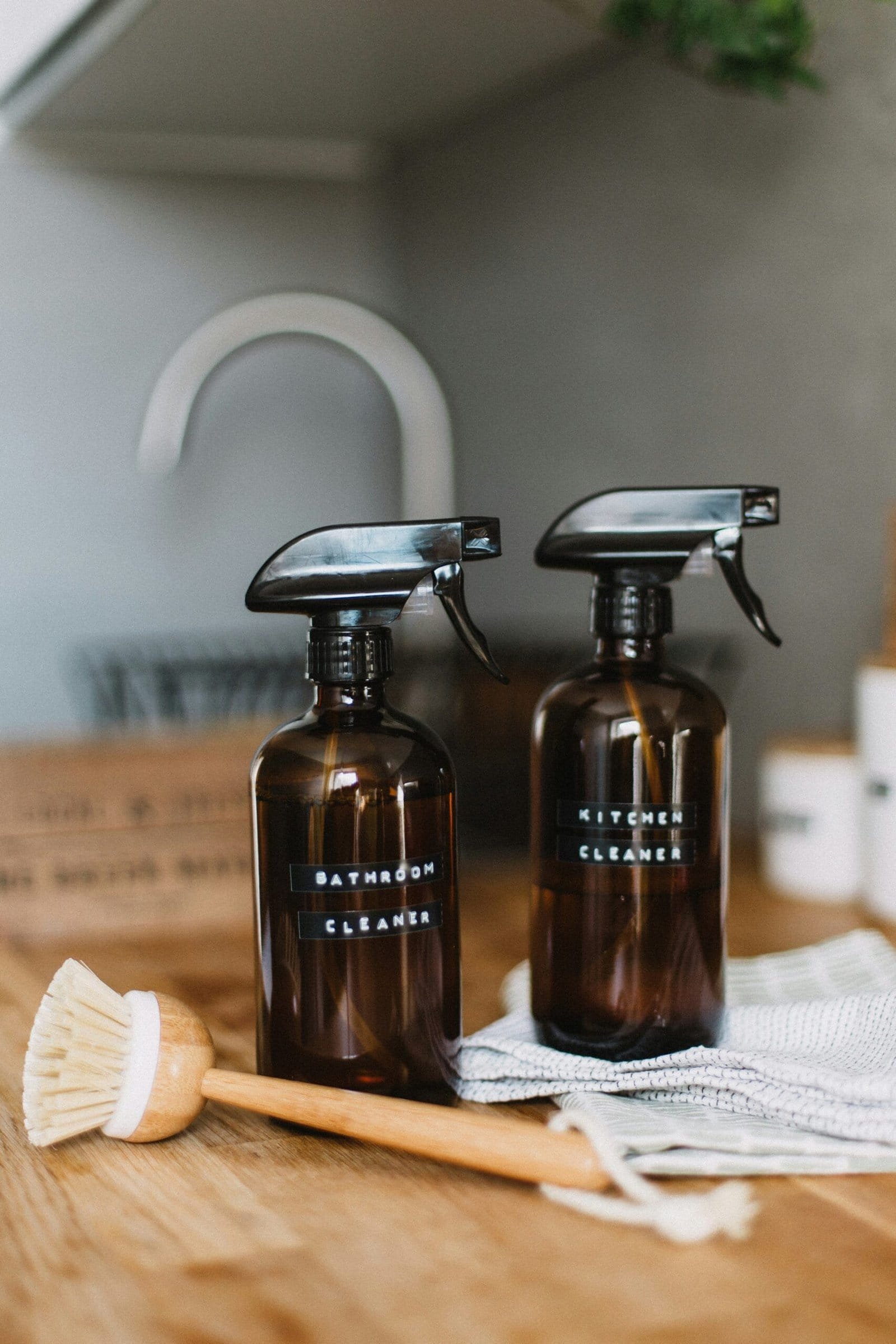Discover the incredible benefits of using vinegar as a laundry aid in this comprehensive guide. Learn how vinegar can effectively remove tough stains, neutralize odors, and act as a natural fabric softener, all while promoting eco-friendly cleaning practices. This article explores the best ways to safely incorporate vinegar into your laundry routine, tips for maintaining your washing machine, and even alternative uses for vinegar beyond laundry. Transform your approach to washing clothes with budget-friendly and environmentally conscious solutions that yield remarkable results.
Introduction to Vinegar as a Laundry Aid
Vinegar has long been recognized for its multifaceted utility, particularly in household management, offering a natural and cost-effective solution for various cleaning tasks. Its application in laundry has gained considerable attention over the years, prompting many to consider vinegar in the washing machine as a viable option. Historically, vinegar’s acetic acid content has made it a popular choice among those interested in eco-friendly alternatives to conventional detergents. Not only is it readily available and inexpensive, but it is also biodegradable, appealing to environmentally conscious consumers.

In practical terms, vinegar serves multiple functions in the laundry process. It can act as a fabric softener, help eliminate odors, and even assist in breaking down stains. With its acidic nature, white vinegar is particularly effective at neutralizing alkaline substances, such as those found in many laundry detergents. This characteristic raises an intriguing question: does vinegar truly deliver on the claims of being a powerful cleaning agent? The answer often depends on individual experiences and laundry challenges.
Please, read our post and do not forget to check our YouTube channel “Grig Stamate”:
https://www.youtube.com/@GrigStamate
You will find there, thousands of designing, furnishing, and decorating ideas for your home interior and outdoors.
Allow me to mention one of them:
Small Dreamy Family Homes [NORDIC STYLE] #7 (video)
Many users have reported positive outcomes when incorporating vinegar into their washing routines. Anecdotes abound involving stubborn stains that seemed to vanish or fabrics that felt remarkably softer after a vinegar wash. However, some skeptics maintain that its effectiveness may have been overstated, leading to misconceptions about its cleaning prowess. By actively engaging with the question of vinegar’s role in laundry, we can better understand its practical applications and limitations as a washing machine companion.
Overall, exploring the role of vinegar in laundry not only opens the door to innovative cleaning methods but also promotes a dialogue about the efficiency of traditional practices versus modern alternatives. Thus, investigating vinegar’s potential as a laundry aid could lead to significant insights for those seeking budget-friendly, environmentally conscious solutions.
Benefits of Using Vinegar in Your Wash
Incorporating vinegar into your laundry routine can yield numerous benefits, transforming the way you approach washing clothes. One of the primary advantages of using vinegar is its remarkable ability to remove tough stains. Mildly acidic, white vinegar works effectively in breaking down stubborn residues caused by food, grease, or sweat that ordinary detergents may struggle to eliminate. For instance, a pre-soak solution of vinegar and water can help lift red wine or berry stains, making your garments look fresh and new again.
Another significant benefit is vinegar’s potent odor-neutralizing properties. If your laundry tends to retain unpleasant smells—be it from sweat, mildew, or just the mustiness of being stored—adding a cup of vinegar during the rinse cycle can work wonders. Vinegar penetrates deep into fabrics, deodorizing and leaving behind a subtle freshness that enhances your overall laundry experience.
Additionally, vinegar serves as a natural fabric softener, helping to soften towels, sheets, and clothing without the need for chemical-laden products. When used in the rinse cycle, it prevents detergent buildup, which can make fabrics feel stiff and coarse. Users can enjoy softer results without sacrificing the environmental integrity of their wash. Furthermore, vinegar’s acidity helps in maintaining the brightness of colors and whites, preserving your clothes longer and improving their overall appearance.
Moreover, vinegar contributes to the maintenance of washing machines by preventing mildew and mold build-up within the drum. Regular use of vinegar can help eliminate any musty odors emanating from the machine, ensuring your laundry area remains clean and fresh. It is an economical, eco-friendly alternative that promotes a healthier cleaning routine.
How to Use Vinegar Safely in the Washing Machine
Using vinegar in the washing machine can be a practical solution for enhancing laundry freshness and cleaning power. However, it is essential to follow specific guidelines to ensure that your fabrics remain safe and your machine operates efficiently. First and foremost, consider the type of vinegar you choose. White distilled vinegar is generally the best option due to its acidity and non-dye nature, whereas other vinegar types, like apple cider or balsamic, might leave residues or staining.
When determining when to add vinegar to your wash, it is advisable to do so during the rinse cycle. This timing allows the vinegar to work effectively without interfering with the detergent’s cleaning properties. A typical recommendation is to use about ½ to 1 cup of vinegar per load. For lighter loads, start with ½ cup, while larger or heavily soiled loads may benefit from up to 1 cup of vinegar. Always avoid pouring vinegar directly onto fabrics, as its acidity may cause deterioration over time.
Consider the type of fabric you are washing. Most cotton and polyester blends are safe for vinegar treatment. However, delicate fabrics such as silk or wool should be handled with extra caution. It is prudent to perform a patch test on these materials first to check for any adverse reactions. Furthermore, never mix vinegar with bleach, as this combination creates harmful fumes that can be dangerous.
Lastly, regularly cleaning your washing machine is crucial. Although vinegar can help reduce odors and mineral buildup, ensure you run a cycle with hot water and vinegar every few months. This practice helps maintain a clean machine and prolongs its lifespan. Following these tips will help you safely utilize vinegar in your laundry routine while keeping your fabrics and washing machine in optimal condition.
Alternative Uses for Vinegar Beyond Laundry
Vinegar, a common household item, serves far more purposes than just enhancing the efficiency of your washing machine. Its versatility extends into various domains, making it an invaluable asset in multiple aspects of daily life. From cleaning to cooking and personal care, vinegar is a household superhero, ready to assist in countless tasks.
In the realm of cleaning, vinegar is renowned for its effective stain removal properties and disinfectant capabilities. Its acetic acid content allows it to break down grime and kill bacteria, making it a brilliant choice for tackling tough spots in kitchens and bathrooms. Simply mixing equal parts of vinegar and water in a spray bottle creates an excellent all-purpose cleaner that can be used on countertops, sinks, and even glass surfaces. This method is not only efficient but also eco-friendly, steering clear of harsh chemicals found in conventional cleaning products.
Vinegar’s culinary applications are equally impressive. Beyond its prominent role in salad dressings and marinades, vinegar can elevate the flavors of many dishes. A splash of balsamic vinegar can enrich the taste of roasted vegetables, while apple cider vinegar can lend a tangy kick to sauces and dips. Its ability to enhance flavors while also aiding digestion makes it a popular ingredient in health-conscious cooking.
Moreover, vinegar finds its place in personal care routines. As a natural remedy, it is often utilized in hair care as a rinse to promote shine and boost scalp health, helping to remove build-up from hairstyling products. Additionally, vinegar can effectively soothe minor irritations and is beneficial for skin conditions. This versatility illustrates that vinegar is not merely a laundry companion but a multifaceted tool that can enhance many aspects of everyday living.
Other related posts from our website:
https://howtobuildahouseblog.com/eco-friendly-lawn-care-tips/
Thank you so much for your attention.
Stay tuned. We will upload many other amazing posts to our website and videos onto our YouTube channel.
Thank you so much.
for your time and attention.
Best Regards
See you to another post,
Bye, Bye



No Responses